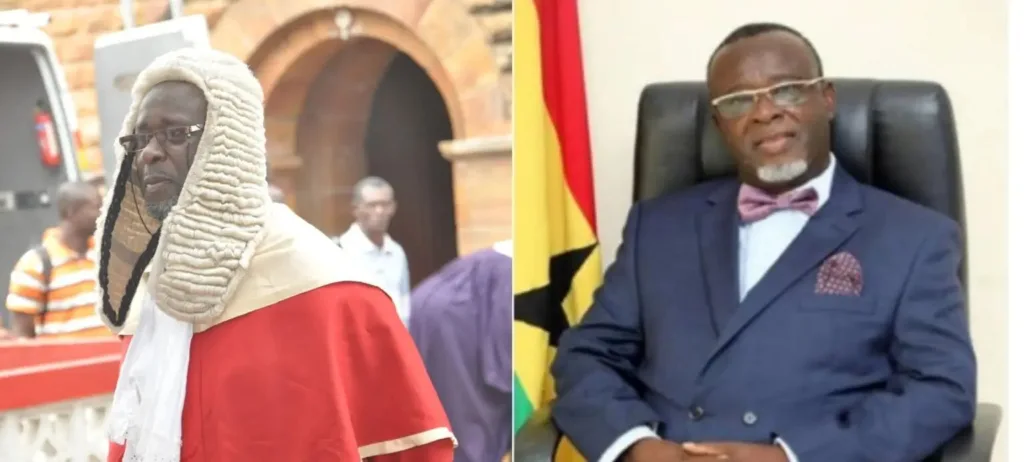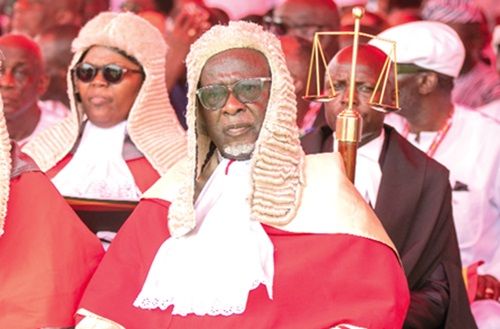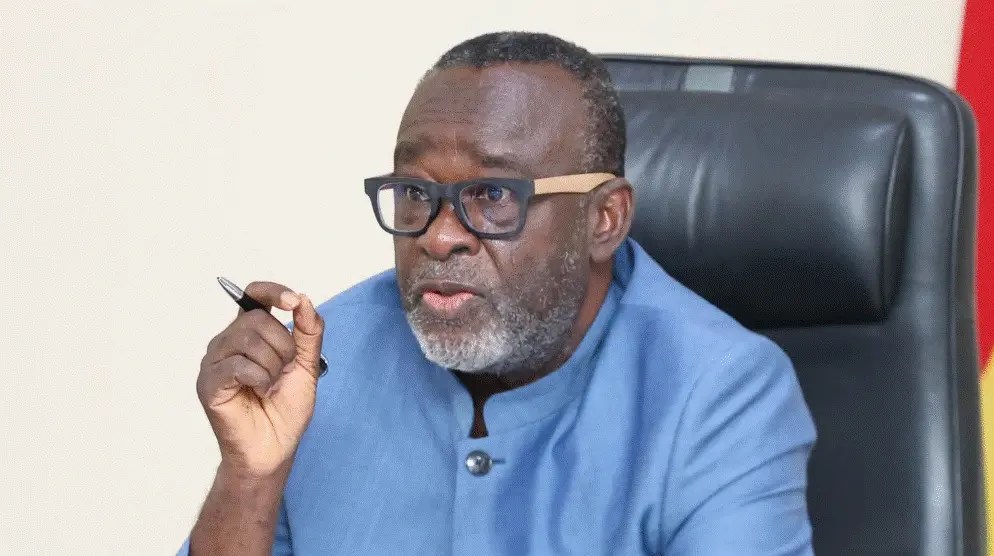Baffoe-Bonnie Slams Deliberate Delays in Ghana’s Courts
Chief Justice nominee Justice Paul Baffoe-Bonnie has criticised the growing trend of deliberate case delays caused by some lawyers in Ghana’s courts, describing the practice as one of the major reasons for the country’s persistent backlog of cases.
Appearing before the Parliamentary Appointments Committee on Monday, November 10, 2025, the Supreme Court judge expressed deep frustration over what he termed “unprofessional tricks and excuses” used by some lawyers to secure unnecessary adjournments.
“Lawyers play all kinds of games to have cases delayed,” Justice Baffoe-Bonnie said. “They use all sorts of excuses to get adjournments, and this is a major contributor to the congestion in our courts.”
He argued that the persistent granting of adjournments—sometimes on flimsy grounds—undermines judicial efficiency, burdens judges and clerks, and erodes public confidence in the justice system.
Justice Baffoe-Bonnie’s remarks highlight one of the judiciary’s most enduring challenges: delays in the dispensation of justice. In Ghana, civil and criminal cases can drag on for years, discouraging citizens and businesses from seeking legal redress.
According to data from the *Judicial Service of Ghana, over *200,000 active cases remain pending nationwide, with a significant portion tied up in procedural adjournments and repetitive motions. The issue has economic, social, and human rights implications — affecting contract enforcement, investor confidence, and public trust in the rule of law.
Legal experts say that unnecessary delays often discourage foreign investment and make Ghana’s court system appear inefficient. For ordinary citizens, delayed justice can mean prolonged detention, unresolved property disputes, and unending emotional distress.
Comparing Global Practices

Justice Baffoe-Bonnie recalled an experience from an exchange programme with the Supreme Court of the United States, where he observed a stricter approach to adjournments.
“When we were attached to the American Supreme Court, they were shocked that we could grant adjournment on the grounds that a lawyer’s wife had gone to the hospital,” he recounted. “The judge there asked, ‘Are you a doctor?’ In their system, you attend court regardless, unless it is an emergency directly affecting you.”
Using this comparison, he emphasised that Ghana’s judiciary must adopt firmer guidelines to prevent abuse of adjournments while maintaining compassion for genuine cases.
Justice Baffoe-Bonnie acknowledged that some requests for adjournment stem from genuine human circumstances, such as illness or bereavement. However, he noted that the system is often exploited by a few lawyers who repeatedly present the same excuses to delay proceedings.
“Sometimes a lawyer says, ‘My father has died,’ and then three years later, the same lawyer says his father has died again,” he said wryly, drawing laughter from the committee. “We must recognise the human element, but also work to eliminate abuse.”
He pledged that, if confirmed as Chief Justice, he would prioritise reforms to curb undue adjournments and improve judicial timelines. These reforms, he said, would be part of broader measures to reduce the country’s case backlog and improve public trust in the courts.
Case backlog is one of the most pressing issues confronting Ghana’s judiciary. Despite recent improvements—such as the introduction of electronic case tracking systems and virtual court hearings—delays persist at all levels of the judicial process.
A 2024 Judicial Service Annual Report noted that even though over 35,000 cases were resolved that year, new filings and adjourned cases continued to outnumber those completed. Many cases remain pending in lower courts, where limited resources, manual processes, and frequent absenteeism among legal practitioners contribute to slow progress.
Legal analysts have long called for stricter case management procedures and sanctions for lawyers who abuse adjournment provisions. Some have also recommended the use of technology and automated scheduling systems to assign and monitor court sittings more effectively.

Justice Baffoe-Bonnie’s remarks have sparked conversation within Ghana’s legal community. Some lawyers have acknowledged that a minority within the profession misuse procedural flexibility for strategic advantage.
However, others argue that delays are not always caused by lawyers alone. They cite systemic challenges such as limited courtroom space, frequent equipment failures, understaffed registries, and delayed rulings by judges as major contributors to Ghana’s slow-paced justice delivery.
A private legal practitioner in Accra, who spoke on condition of anonymity, said:
“It’s true that some lawyers take advantage of the system, but the courts themselves also face structural inefficiencies. Until we address both sides, reforms may not yield lasting results.”
Justice Baffoe-Bonnie’s pledge to reform the system comes at a time when Ghana’s judiciary is under scrutiny from civil society and the public. Several advocacy groups, including the Ghana Integrity Initiative and Commonwealth Human Rights Network, have called for the modernization of judicial processes to enhance speed, access, and fairness.
Among the proposed solutions are:
- Digitizing court calendars and notifications to prevent missed appearances.
- Imposing stricter timelines for case management and judgments.
- Training for judges and clerks on efficient scheduling and digital tools.
- Reviewing disciplinary procedures for chronic delays caused by legal practitioners.
These measures, experts say, could help restore public confidence in the judiciary and support Ghana’s broader goal of improving the ease of doing business.

Justice Paul Baffoe-Bonnie’s candid remarks before the Appointments Committee underline a crucial truth: Ghana’s justice system, while improving, still struggles with inefficiency and procedural abuse. His call for reform reflects growing recognition within the judiciary that delayed justice is denied justice.
If approved as Chief Justice, his ability to balance human compassion with firm discipline may determine whether the courts can finally deliver the swift, reliable justice Ghanaians have long demanded.
